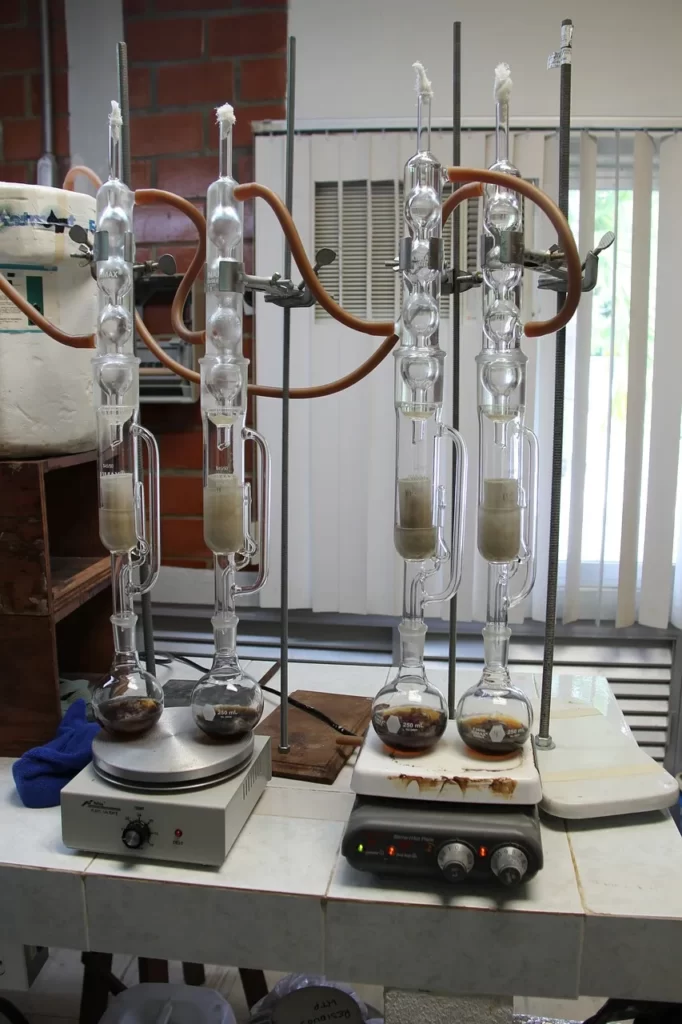Interesting Facts About Biomedical Engineering: Engineering the Future

Biomedical engineering is a dynamic and fast-growing area of science and technology that merges engineering principles with medical sciences to enhance the healthcare system. It applies engineering, biology, chemistry, and other sciences to invent novel medical treatments and diagnostic tools. Biomedical engineering has brought about significant advancements in the medical field, ranging from the creation of medical devices to the development of innovative treatments for different diseases. Here are some interesting facts about biomedical engineering that you may not have known.
Exploring the Interesting Facts About Biomedical Engineering
Biomedical engineering is a rapidly growing field that has the potential to greatly enhance global healthcare. By combining engineering principles with medical knowledge, biomedical engineers design and create medical devices, software, and systems that can greatly improve patient care. This field is responsible for groundbreaking advancements in disease research, medical imaging, and more. Thus there are many interesting facts about biomedical engineering. The advantages of biomedical engineering are vast and varied.
The technology developed by biomedical engineers has completely transformed diagnostics, treatments, and patient care. For example, diagnostic tools like MRI and CT scans provide doctors with a comprehensive view of a patient’s health, leading to more accurate diagnoses and better treatment plans. Biomedical engineers are also developing prosthetics that allow amputees to regain their mobility and independence.
Furthermore, biomedical engineering plays a crucial role in the development of medical devices such as pacemakers and insulin pumps, which are used to treat chronic illnesses. These devices can monitor vital signs, deliver medication, and even restore cardiac function, potentially saving lives. Additionally, biomedical engineering has made it possible to create artificial organs and tissues, offering hope to those in need of replacements for damaged or missing body parts.
Biomedical engineering has also made significant contributions to the treatment of diseases like cancer and HIV/AIDS. Through extensive research, biomedical engineers have developed drugs and therapies that greatly improve the quality of life for those affected by these conditions. Moreover, this field has the potential to develop new treatments for rare or debilitating diseases.
The impact of biomedical engineering cannot be overstated. It has revolutionized the medical field by providing life-saving treatments and advanced diagnostic tools. By investing in this field, we can continue to enhance the lives of patients worldwide.
Uncovering the Vast Range of Biomedical Engineering Applications

Biomedical engineering is a field that combines engineering principles and medical knowledge to improve healthcare, medical equipment, and patient outcomes. It has various applications, such as developing medical devices and understanding the human body. Biomedical engineers play a crucial role in advancing the healthcare industry and enhancing patient care.
One important application of biomedical engineering is the development of medical devices. These devices are designed to monitor, diagnose, and treat medical conditions. They can range from simple blood pressure cuffs to complex robotic surgical systems. Biomedical engineers also contribute to the development of implants, prosthetics, and artificial organs, which help patients regain mobility and improve their quality of life.
Another aspect of biomedical engineering is gaining a better understanding of the human body. This involves creating models and computer simulations to study different conditions and develop new treatments and therapies. Biomedical engineers also utilize imaging technologies like MRI and CT scans to examine the structure and function of the body.
Biomedical engineering is also involved in the study of genetics and biotechnology. It utilizes genetic engineering to create new treatments and drugs, as well as biotechnology to manufacture tissue and organs for transplantation.
Additionally, biomedical engineering contributes to the development of innovative methods for diagnosing and treating diseases, using nanotechnology and robotics to enhance precision and efficiency. In summary, biomedical engineering has a wide range of applications that contribute to improving healthcare delivery, medical equipment, and patient outcomes.
Examining the Intersection of Biology and Engineering in Biomedical Engineering
Biomedical engineering is a rapidly growing field that combines biology and engineering to find solutions to medical problems. It focuses on integrating biology, engineering, and clinical practice to develop medical devices and treatments. This field applies engineering principles to understand biological processes and develop new technologies.
Common applications include prosthetic limbs, pacemakers, and diagnostic imaging systems. Biomedical engineers also work on computer models and new materials to improve medical devices. They are involved in developing medical informatics systems and biotechnologies like gene therapy and tissue engineering.
Discovering the Unique Challenges and Opportunities of Biomedical Engineering
Biomedical engineering is a field that is rapidly growing and offers both challenges and rewards. It combines engineering, biology, and medicine to improve people’s quality of life through the development of new medical technologies and treatments. This field requires a deep understanding of engineering and medical sciences, as well as a creative and analytical problem-solving approach.
Biomedical engineering presents unique challenges, including the need to comprehend complex topics such as human physiology, anatomy, physics, and chemistry related to medical devices and treatments. Biomedical engineers must apply their knowledge to solve problems, create new technologies, and develop safe and effective treatments. However, there are also numerous opportunities for biomedical engineers.

They can contribute to healthcare management, public policy, and teaching, in addition to developing medical treatments and technologies. The demand for individuals with a background in biomedical engineering is high in the medical and healthcare sectors. To succeed in biomedical engineering, a strong foundation in both engineering and medical sciences is crucial.
This includes a comprehensive understanding of anatomy, physiology, biology, and physics, as well as practical application of these concepts. Proficiency in problem-solving and data analysis is also essential for creating innovative treatments and technologies.
In summary, biomedical engineering is a challenging yet rewarding field that requires a combination of engineering and medical sciences knowledge, along with a creative and analytical problem-solving approach. With the right skills, there are abundant opportunities available. Read more here.